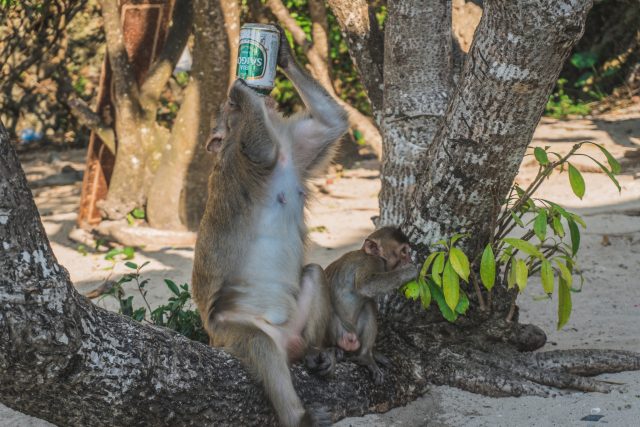Drinking alcohol common in the natural world, study claims
A new study from the University of Exeter has revealed that incidents of wildlife consuming alcohol are “much more abundant” than previously thought.

The study, titled The evolutionary ecology of ethanol, sheds light on how ethanol consumption is not just restricted to humans, but also part of the natural world.
It was in the Cretaceous period (145 to 66 million years ago) with the evolution of flowering plants which produced fruit and nectar, the sugars of which are fermented by wild yeasts, that alcohol became commonplace in nature. Today, the study notes, there are more than 325,000 species of flowering plants on Earth.
Senior author Dr Kimberley Hockings, from the Centre for Ecology and Conservation at the University of Exeter, argued that current thinking was “moving away from this anthropocentric view that ethanol is just something that humans use”.
“It’s much more abundant in the natural world than we previously thought,” she continued, “and most animals that eat sugary fruits are going to be exposed to some level of ethanol.”
Partner Content
Some species seem to actively seek it out. Vinegar flies, Drosophila melanogaster, use fermenting fruit as a habitat for their larvae, and they have evolved to metabolise ethanol very efficiently. It might also be a case that the ethanol offers protection against parasites.
There are also reports of larger animals, including primates, eating fermented foods in the wild. In the case of wild chimpanzees, they are known to ingest fermented palm sap, utilising leaf sponges to access it, even when the ethanol is at levels when it would be detectable and cause a physiological response.
While stories of animals getting drunk, such as the case of elephants in China that drank too much corn wine, generate good headlines, it seems that intoxication is not usually the intention, as the study’s senior author, Matthew Carrigan of the College of Central Florida, explained: “From an ecological perspective, it is not advantageous to be inebriated as you’re climbing around in the trees or surrounded by predators at night – that’s a recipe for not having your genes passed on. It’s the opposite of humans who want to get intoxicated but don’t really want the calories – from the non-human perspective, the animals want the calories but not the inebriation.”
But there may be certain benefits to being slightly under the influence, according to the University of Exeter’s Anna Bowland: “On the cognitive side, ideas have been put forward that ethanol can trigger the endorphin and dopamine system, which leads to feelings of relaxation that could have benefits in terms of sociality. To test that, we’d really need to know if ethanol is producing a physiological response in the wild.”
One suggestion in the paper is that these endorphin-triggering properties may have contributed to the formation of social groups of humankind, enabling separate individuals to bond “with reduced interaction time”. The researchers intend to examine the behavioural and social implication of ethanol consumption in primates in their next study.
Related news
‘The role of Ozempic isn’t just about reduced consumption, it’s about a shift in values’
Could Gen Z be giving up on abstinence?
Tesco thief banned from all UK supermarkets after £1.6k booze haul




